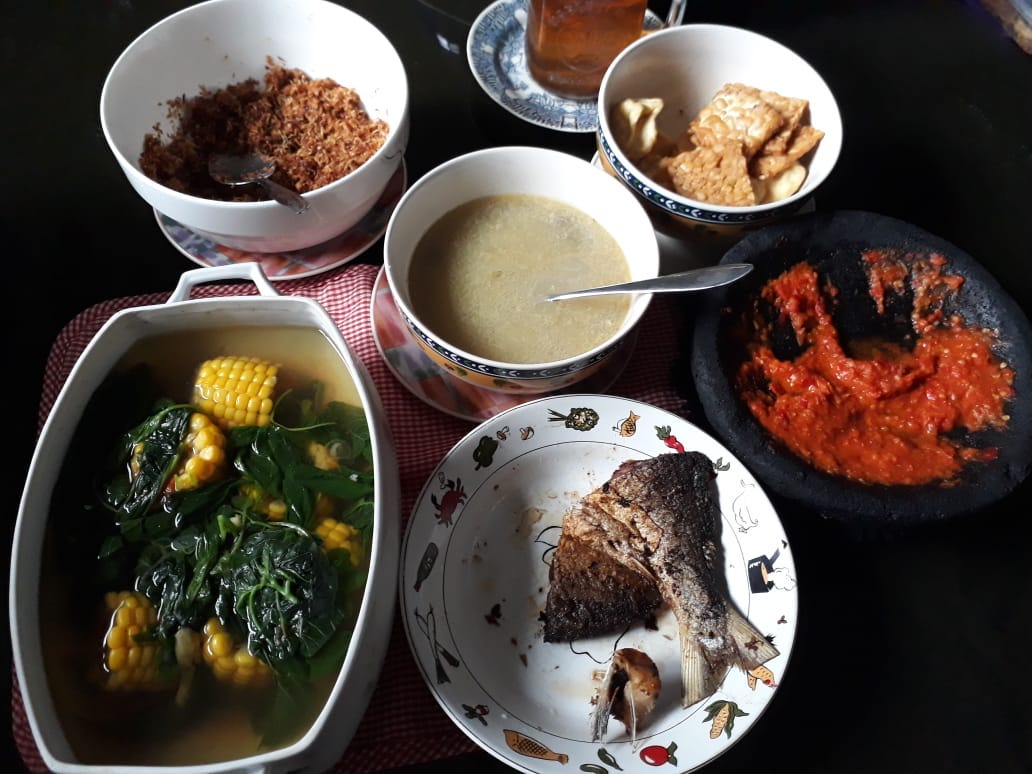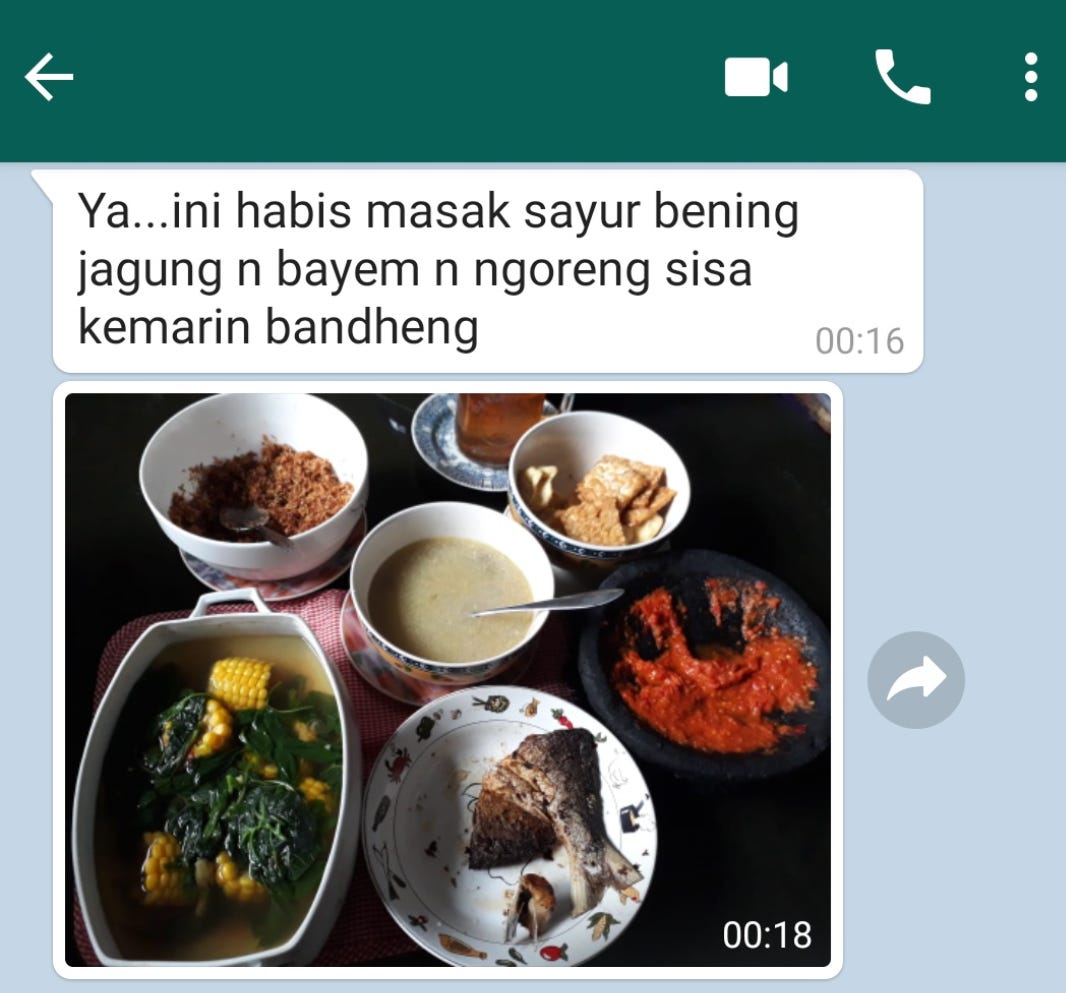From the journal: Mama
Celebrating other women's story is easy, but not when it comes to celebrating my own mother.
During March every year, we celebrate Women’s month globally. In December, Indonesian women are celebrated on the 22nd. Both in December and this March, I have looked back on what it means and how to support women around me (both biologically born as women or trans women). It seems easier to me to see the virtue of other women, whether I know them personally or not. But when it comes to seeing my own mother, it is a difficult task.
It’s so much easier to appreciate them because you don’t personally know how they handle difficult times.
It’s so much easier to see the goodness, when you have never seen the sadness, the rage, and the anger that they feel.
It’s so much easier to see their light because they never hurt you.
To be honest, I’ve never thought about my own mother that much until recently. Growing up, I always wondered how my friends wrote poems about their mother on Hari Ibu (Mother’s Day). Maybe they were also faking it like me?
What to appreciate from my mother?
What to adore from my mother?
How do I acknowledge her?
I call my mother Mama. She didn’t grow up murmuring the word “Mama”, she was brought up in a language to call a mother “Ibu” with a distinctive “k” at the end of the word that floats in the air because that’s how the sound of “u” mostly ended in Javanese. She chose the word “Mama” for herself because it was easier for me to pronounce and she didn’t want to be called old-fashioned.
The first word I said was not Mama. Not Ibu. Not Ayah. Not Papa.
The first word I said was more like an explosive hissing sound that my father claimed to hear for the first time.
He’s made many claims all his life, though. So I choose to see it objectively as a statement.
She listed out so many names for me; mostly flower, perennial plants, and pretty sounding names written on a piece of paper. But the paper was gone before she gave birth, before she decided on one name. One name she remembered was Amelia; a name rooting in Hebrew, meaning “to work”. She’s a Capricorn moon (like me), no wonder that probably in the back of her head she wanted me to work my ass off.
After I was born, relatives said she had a prolonged baby blues. I don’t know when and how it started. All I know is that the blues was extended until I was an early adult. There was a space between her and everybody else, including me.
Even when there were only me and her at the house;
even when we literally only had each other,
the space lingered.
Even when she was alone,
the space lingered
and she lingered there.
What to appreciate from my mother?
Her cookings?
She doesn’t enjoy cooking. It is a big deal to her. Every chop, every stir, every flavour; remind her to responsibility.
Every smoke filling the air in the kitchen suffocates her.
The memory of having to prepare jamu, jajan (in the afternoon), and dinner everyday - for her siblings, her abusive father, and her mother - chokes her.
How do I know this? Of course, she ranted anxiously while I helped her cooking only to get distracted by how poorly I prepared the shallots, chopped the vegetables and fish.
My mother cooks simple food, modestly seasoned only with salt, white pepper, a pinch of ketumbar, and nutmeg, if needed.
Her Soto Ayam is clear, translucent, and humble; it’s not yellow like most Soto in Jawa and it’s not complex at all. She doesn’t use a time-consuming technique to make broth, she doesn’t brag about having to use a lot of shallots and garlic.
Her Bihun Goreng is closer to plain. You can tell that she only uses a teaspoon of oil and half teaspoon of Bumbu Putih to begin with, making her Bihun Goreng look slightly illuminating, but not greasy. She put thin slices of carrots, cabbage, and sawi hijau.
Her go-to food is Jangan Bening; a clear soup seasoned only with shallots and kunci root, filled with chopped corn and spinach.
Her Sambal is Sambal Kecap; a small handful of cabe rawit crushed with spoon in a dollop of Kecap Manis. When she has to make the usual sambal, she’ll put tomatoes and sugar, because she likes her sambal mild.
Her greens; Bayam; Kangkung; Kenikir; Cassava leaves - are mostly steamed (other than cooked as Cah / Stir-Fry), served with Sambal Kecap.
When she had no idea of what to cook, which happened everyday - especially in the morning - she’d boil water to mix for Bumbu Pecel and chop Cassava leaves or Kenikir. Then I’d make rice and steamed it along with the vegetables. For the most part, that’s the food I grew up eating, a handful of steamed greens served with Sambal Kecap, warm rice, fried Tempe and fish, occasionally - and always, all day everyday, Pecel. She only cooked Soto or Bihun Goreng when she had enough energy on weekends.
For the most part, that’s how I spent my time with her; early in the morning where I made rice for the two of us to eat for the rest of the day. In the evening, she always looked exhausted, but she made time to ask about my day which I appreciate until today.
But this didn’t happen forever, when I started to turn into teenagers,
the space grew bigger and heavier
the distance between us grew further,
- and the void in her grew darker.
She stopped cooking. She stopped eating seasoned food, even lightly seasoned ones, for years. Maybe 7 or 8 years. Who knows? Time passed and there’s not much I can remember to put into this cabinet we call time.
She stopped asking me about my day. She stopped talking unless it’s about the house bills, school tuitions, selling her jewelry, or any financial situation at home I should know. She stopped coming to school to get my report. She stopped enjoying things. She stopped appreciating things; not even birthday gifts and not even her Wetonan* that she cared about the most. She stopped fasting on her wetonan, so she forgot that she had to eat certain meals the next day for wetonan (every person’s offering is different, it’s based on your Weton). Maybe she’d wished for the world to just pause for a moment; to let her take time, to understand what is it that she’s feeling or what is actually happening, to rest. But time flies and children get older.
What to adore from my mother?
When I think I don’t know her that well. When she chose to shut the door for years.
There was a distance not just between her and the world, but between her and me. A distance good enough for me to see her not as my mother; but as her - the second child of 6 that had to prepare meals; the teenager whose dream to be an actress and a poet was crushed by her father; the girl who fell in love with someone from different religion and ethnic group, the woman who chose to love in secret; the woman who did not understand the concept of birthday in modern calendar and was insulted by my father’s side of the family; but deeply rooted in every ritual for her child (my 3 month, 7 month, my Wetonan even until today) and her family; the woman who despite learning to be a muslim, she is still praying in Kejawen; the woman who sees cooking as duty, but loves the soil that produces food so much that when she’s sick, she only wants to do gardening, and the woman that I don’t know behind the closed door and the sound of tv buzzing in her room.
How should I acknowledge my mother?
Through writing this, I am trying to acknowledge her. I am trying to see that she’s there. I am trying to see that she’s just a person with so many dreams crushed by family’s expectations and conservative social norms. I’m trying to accept that she has tried to apologize through her gestures. I’m trying to tell her that she doesn’t need to explain everything.
*Wetonan = a celebration referring to the day when you were born. In Javanese astrology, there’s a numerology counted from that day. Wetonan is celebrated by making food for you, your ancestors, and your spiritual siblings to eat; so you basically have a meal and an offering. In Javanese cosmology, you’re not born alone into this world.



